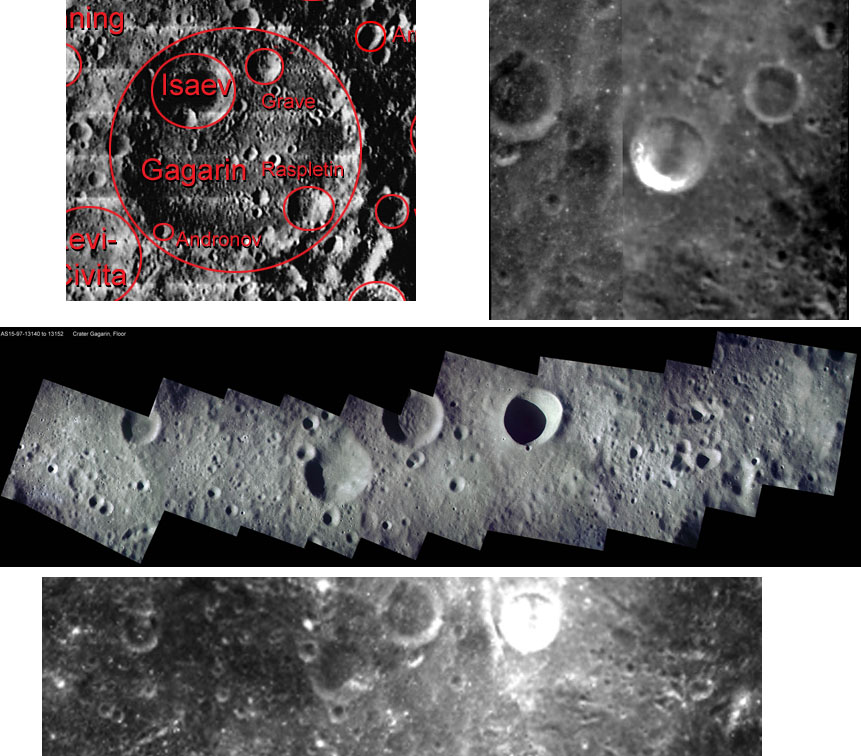
images from: top-left: Lunar Orbiter 1 - 115M via LPI DLOPAM; top right: Paolo’s Clementine image via Map-A-Planet; middle: NASA Apollo 15 via Apollo Flight Journal; and bottom from Clementine via Map-A-Planet.
Paolo Amoroso is the #1 contributor of images to the LPOD Photo Gallery. Every day he cuts an image of a named farside crater from the Clementine mosaic at Map-A-Planet and uploads it to the Gallery. Yesterday he submitted an image for Kosberg, a 15 km wide crater at 20.2°S and 149.6°E. This is a small crater within the larger farside crater Gagarin. When I saw his image I wondered why such a small crater had been named, rather than lettered. Good nomenclatural practice does not place one named crater inside another. When I pulled out the Clementine Atlas I realized that the bright crater Paolo selected was not the crater of the IAU coordinates. The Apollo 15 mosaic made for the Apollo 15 Flight Journal beautifully depicts the area. The crater at the coordinates of Kosberg is hardly worthy of a name, whereas the nearby fresh crater that Paolo selected is a very good landmark at all illuminations. The IAU added the name Kosberg to an inappropriate crater in 1976, when the IAU lunar nomenclature committee was chaired by a person (D. Menzel) who was ignorant of lunar cartography. Later that year he died, but many poor nomenclature choices remain memorialized on the Moon, including Kosberg. No name is needed - the IAU should have found a crater worthy of a name. Paolo’s crater is actually designated Gagarin G, a proper level of naming.
Related Links:
Clementine Atlas charts 102 and 103.
Nomenclature history from E.A. Whitaker’s Mapping and Naming the Moon (1999).
Yesterday's LPOD: Small Northern Gash
Tomorrow's LPOD: Rapid Growth, More to Come
COMMENTS?
Register, Log in, and join in the comments.



